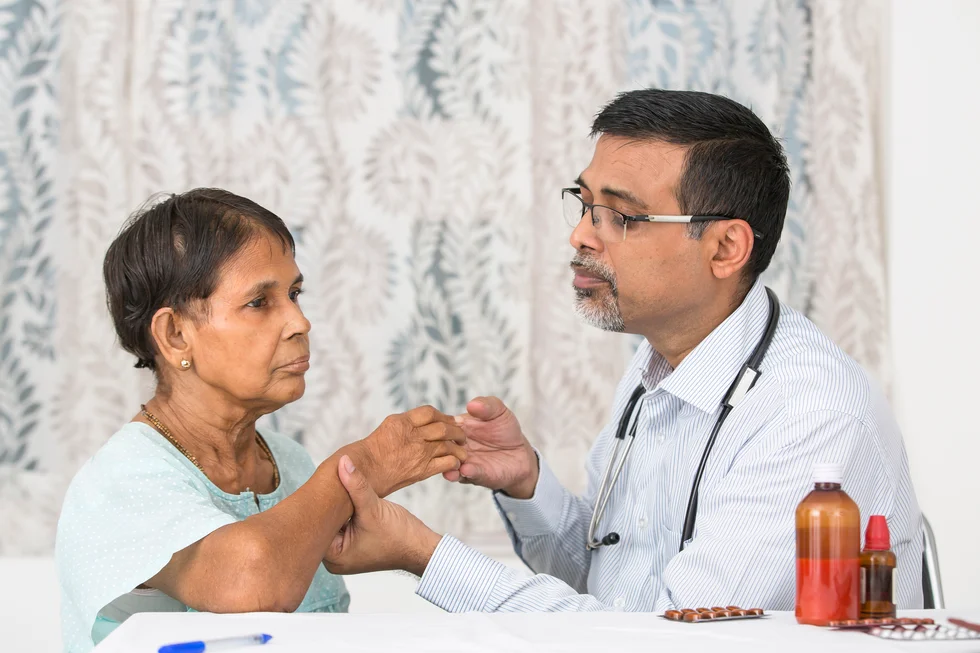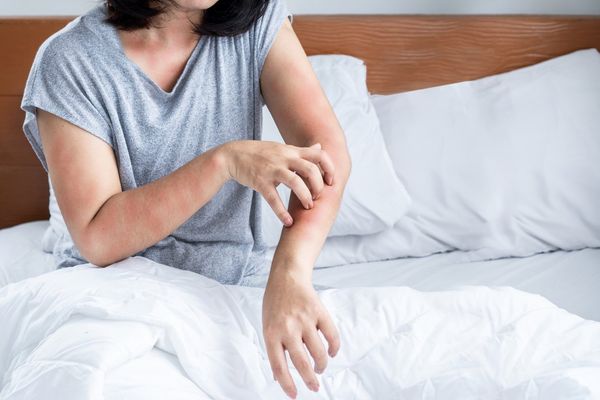Rates of autoimmune diseases have been steadily climbing over the last 30 years. Estimates indicate the number of Americans affected could be as high as 50 million, which is 20 percent of the population.
Did you know that women are much more likely to be afflicted with an autoimmune disease than men? An estimated 80 percent of those with autoimmune diseases are women. Sadly, autoimmune diseases are one of the leading causes of death and disability in girls and women ages 65 and younger.
About 100 autoimmune diseases are known to exist, ranging from mild to severe and intermittent to chronic. They can be disabling or even life-threatening. Though the causes are not clearly understood, what is known is that autoimmune diseases develop when our immune system, which is designed to fight off foreign invaders and keep us healthy, mistakenly produces antibodies that attack its own healthy organs, cells and tissues.
Autoimmune diseases tend to run in families, but there may be other culprits involved, scientists say, such as diet, environmental factors, viruses, bacteria and even stress.
Then, there's the gender bias. One reason for higher rates of autoimmune diseases in females could be women's higher fluctuating hormone levels, particularly around childbearing years - which is when many women are diagnosed.
Other experts surmise it could be due to the complexity of women's immune systems as compared to men's, or to their (natural) stronger response to inflammation, which plays a key role in autoimmune diseases. Others theorize that fetal cells left behind by pregnancy may be the culprit behind the development or exacerbation of certain autoimmune diseases.
Since there is no single test that can diagnose an autoimmune disease, it's common for many people to wait four or more years and visit a number of health care professionals and receive multiple diagnoses before getting a definitive diagnosis.
That's why it's so important to keep a careful record of your symptoms, including when and how often they occur and how long they last. It's also critical to seek the advice of a specialist who can treat your main concern (for instance, if you're experiencing skin problems, visit a dermatologist), and go for more than one opinion if you are not receiving the help you need.
Here are five of the most common autoimmune diseases that affect women. Each disease is unique, yet many share common symptoms of fatigue, dizziness and low-grade fever:
Systemic lupus erythematosus (lupus).
Nine out of 10 people affected with lupus are women, commonly between ages 15 and 44. Lupus attacks and damages any part of the body including the joints, skin and/or organs (brain, lungs, kidneys and blood vessels). Some people experience mild symptoms, while others face serious health risks like kidney disease, cardiovascular disease and stroke. Experts acknowledge the role of genes, but say that other possible causes include factors like hormones such as estrogen, the environment, certain medicines and viruses. Read more about who is at risk for lupus.Some common symptoms include red rashes (most often on the face), sun sensitivity, muscle and joint pain, fever and hair loss.
Multiple sclerosis (MS).
This unpredictable disease of the central nervous system disease affects the myelin sheath that covers and protects the nerves, interfering with the transmission of signals to the brain. Most people first notice the symptoms of MS—blurred or double vision, red-green color distortion and even blindness in one eye—between ages 20 and 40. MS can also lead to cognitive problems like difficulties with memory and concentration and can trigger muscle weakness so severe that it can be difficult to walk or stand. At its worst, MS can cause partial or total paralysis.Two to three more women than men are diagnosed with MS, according to the National Multiple Sclerosis Society. Theories vary: Some experts think it could be due to women's higher percentage of body fat and obesity, which is linked to inflammation, a key player in the development of MS. Researchers have identified a certain brain protein to be more prevalent in those with MS and found that women produce more of this protein than do men.
Thyroid diseases.
Women are more prone than men to Graves' disease and Hashimoto's thyroiditis.Graves' disease causes the thyroid to produce an excess of thyroid hormone (hyperthyroidism). It usually occurs between ages 30 and 50 (but can appear at any age) and appears seven to eight times more frequently in women then in men. Besides being female, risk factors include other disorders of the immune system (such as type 1 diabetes or rheumatoid arthritis). About 30 percent of people with Graves' disease will have a condition known as Graves' ophthalmopathy, which causes bulging, puffy or inflamed eyes and light sensitivity, double vision and eye pain. If left untreated, Graves' disease can cause serious problems, including thinning bones and osteoporosis and heart-related problems.
In Hashimoto's thyroiditis, the immune system attacks the thyroid, often leads to an underactive thyroid gland (hypothyroidism). It affects about 10 times as many women as men. It typically occurs in middle-aged women and progresses slowly over time, gradually damaging the thyroid and reducing thyroid hormone levels. Main symptoms include being tired for no apparent reason; dry skin; a pale, puffy face; and constipation.
Rheumatoid arthritis (RA).
Occurring when the immune system attacks the lining of various joints throughout the body, RA results in painful, stiff, swollen and deformed joints and muscle weakness, leading to reduced movement and function. Female hormones may play a role in the onset of the disease, which commonly waxes and wanes with periods of flare-ups along with periods of remission. As many as 75 percent of those with RA are women, who typically develop the condition between ages 30 and 50, younger than when men typically get the disease.Psoriasis.
This common condition causes skin cells to build up more rapidly than they normally would. In turn, these excess cells form red, silvery, patchy and sometimes painful scales. Symptoms can be mild (like a few spots of dandruff-like scales) to severe (major outbreaks covering large areas of skin) and can also cause thickened, ridged or pitted nails and sore joints. Although psoriasis is more prevalent in women than in men, research finds that men's symptoms are typically more severe. Learn more about common misconceptions about psoriasis.
- Hashimoto’s Disease Brought the Curtain Down on My Career As a Soloist in the NYC Ballet - HealthyWomen ›
- Autoimmune Diseases 101 - HealthyWomen ›
- The Phases of Thyroid Eye Disease - HealthyWomen ›
- Multiple Sclerosis and Cognitive Function - HealthyWomen ›
- Hashimoto’s Disease 101 - HealthyWomen ›
- Frequently Asked Questions About Lupus - HealthyWomen ›







